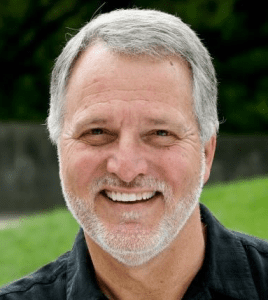 Andrè Louf is a Trappist monk and a master of prayer. His little book is titled Teach Us to Pray. Louf makes a provocative observation about the Word of God and prayer, particularly, about the Psalms. (Please overlook the gender choices.)
Andrè Louf is a Trappist monk and a master of prayer. His little book is titled Teach Us to Pray. Louf makes a provocative observation about the Word of God and prayer, particularly, about the Psalms. (Please overlook the gender choices.)
In their naked and literal human aspect the psalms are at once poetry and prayer: prayer indeed, but in poetic form. Their potency, however, is not merely a human thing. God himself is using and producing the word that they address to man.
That word is instinct, not only with the living breath of a human individual—albeit that of a creator-poet—but also with the breath of God, who is creator-Spirit…Here [in the psalm] God puts into the mouth of man the Word that man is to offer Him in response”(49-50).
As with the prayers of Jesus—God talking to God—so, too, when we pray the Psalms we are praying God’s Word given to us back to God. Human prayer is thrust into an ongoing conversation God has within the Triune community—Father, Son, and Spirit.
Jesus’ favorite address to God was the term “Father.”When he taught his disciples a prayer, he said, say this, “Our Father…”. The incredible prayer (Jesus’High Priestly Prayer) in John 17 gives us a glimpse into the love between God the Son and God the Father. Incredible holy grounds as we listen in on God talking to God.
In the loving intimacy of a grace-established relationship, prayer is not about transferring information (either to God or from God), but the exploring of a relationship permeated with the divine presence. Within the matrix of a pray-er (you or me) and the God-Three-in-One, this blessed community of Godness, we experience strength of soul, deepening faith, expanding love, and riveting hope. The Scriptures take a vital place in prayer, giving us God-given vocabulary to pray fully, honestly, compassionately, and expectantly. The praying heart catches fire in the energy of the Word.
Eugene H. Peterson, another spiritual director in prayer, writes,
The authorial character of the Holy Scriptures was established as personal in the persons of Father, Son, and Holy Spirit. Because it was personal it was also relational, which meant that all reading/listening of Holy Scripture required personal, relational, participatory reading/listening”(Eat This Book, 27).
Prayer isn’t just a list of needs, people, projects, cries for help, and calls for healing.
Prayer, especially, praying the Word of God through the Son of God in the Spirit of God back to God is a presence participation in the life of God. This is deeply transforming space. Don’t imagine prayer as if you’re on a phone talking solo to God. Imagine you’re in a huddle and you face important issues, trying experiences, life-changing decisions. In that huddle getting direction from the Holy Trinity through the miraculous Book called the Bible.
God talks to God and you are invited into the conversation!











